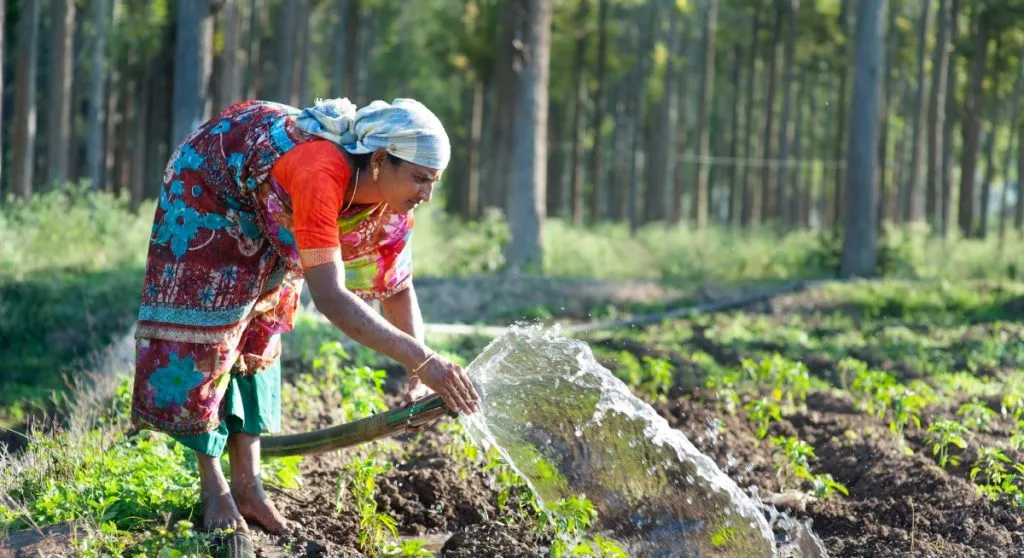Organic farming in Kerala, it’s just people trying to do things right. No chemicals, no rushing, just soil, seeds, some faith in nature, and perhaps a little bit of defiance as well.
In Idukki or Palakkad, inquire a farmer why they stopped using pesticides. They won’t say “eco-consciousness.” They’ll say, “Because my soil stopped breathing.” Their land went dry, insects didn’t leave, and the vegetables? Tasteless. That’s when it clicked. The natural approach, or the conventional manner, merits another opportunity. And that’s where the shift began not in boardrooms or newspaper articles but in quiet fields, in cow sheds, in backyard compost pits.
Importance of Organic Farming in Kerala
You want to know the importance of organic farming in Kerala? Here’s what it really looks like. It’s when a farmer doesn’t need gloves to touch his soil anymore. When you can eat a raw cucumber straight from the vine without rinsing it five times. It’s not some green badge, it’s survival.
See, people thought chemicals were helping. They did, for a while. Then came sick crops, weak yields, burning costs, and tired soil. And slowly, families began switching back. Now, kids eat spinach their mothers grew without a drop of poison. Rivers run clearer where runoff used to flow. And farmers? They sleep better. That's the importance right there.
Natural Farming in Kerala: Not New, Just Forgotten
Funny thing about natural farming in Kerala, it’s not a trend here. It’s a memory. Old folks talk about it all the time. Mixing ash with cow dung, planting marigolds near bitter gourd to keep pests away. No training videos. Just trust, experiments, failures, and word of mouth. But it’s evolving too. Young farmers now combine that knowledge with fresh ideas vermicompost units, EM solutions, even solar-powered pumps. Nobody is claiming it is simple. It is, however, successful. And more than that, it feels right. It feels like the land is finally being heard again.
What Organic Vegetable Farming in Kerala Really Looks Like
You might think organic vegetable farming in Kerala is some large estate thing. Nope. Start in someone’s kitchen garden. You’ll find curry leaves next to tomatoes. Tapioca growing beside bananas. Ladies drying chilly seeds on old newspapers. It’s not commercial, it’s personal. But in rural belts? Yeah, it scales. 1-2 acre organic farms run by households grow spinach, okra, pumpkin, and even turmeric. No massive machinery. Just grit, manure, patience and often, a little rain dance now and then. The harvest might not be huge, but it’s real. And it sells. Especially in local markets where people now ask, "Is this pesticide-free?"
Daily Life on an Organic Kerala Farm
Mornings start before the sun. The farmer walks the land, checks the leaves—not just for pests, but for how they "feel." It’s instinctive. The cows moo. Compost bins steam. Additionally, there's always that subtle earthy scent that lets you know "the soil is alive."
There’s no shouting, no rush. Just tasks mulch here, water that, mix the cow dung tea. And the best part? Even with all the work, no one’s scared to touch their food. That’s what organic farming in Kerala gives peace of mind.
Organic Farming Training in Kerala: Real Skills, Real People
Now, organic farming training in Kerala isn’t some classroom theory. It’s workshops in someone’s backyard. Real farmers teaching real stuff.
How to make bio enzymes. How to spot healthy compost by its smell. How to save seeds without them rotting. Teens come, old men join, sometimes even office folks on weekends. And it’s spreading fast. Colleges are tying up with villages. Women’s self-help groups are setting up rooftop gardens. Some farmers even post YouTube videos. It’s knowledge, passed hand to hand. That’s how this survives.
It’s Not All Sunshine, But It’s Worth It
- Let’s not pretend this is easy. Organic farming in Kerala has its mess.
- Crops fail. Rain plays games. Pests don’t care if you’re organic or not. Certification, It’s a headache. Some buyers haggle. Some don’t believe.
- But here’s what keeps people going: their soil doesn’t need healing anymore. Their veggies don’t need hiding. Their kids help out, not run away.
- Whenever someone remarks, “This reminds me of home,” it makes it all worthwhile.
Eco-Friendly Farming Methods: Kerala’s Unspoken Strength
Kerala folks have always leaned green, even before the buzzwords. Compost pits, greywater reuse, planting shade trees with pepper vines these are just how things were done. Now, with the tag of eco-friendly farming methods, they’re being recognised. Schools are adding gardens. Cafes grow their own herbs. Tourists visit organic farms instead of malls. It’s quiet, but real. Like a movement that doesn't want to be called one.
Then what follows for Kerala's fields? The future? Truthfully, nobody does. More and more people, however, are raising concerns. About what’s on their plate. About what their soil is going through. And organic farming in Kerala is answering. Not with big promises—but with slow, green, steady change. One harvest at a time. One compost pile. One happy worm. Farmers aren’t just growing food. They’re growing trust again.
And That’s the Truth: This Is More Than Farming
Ask anyone who’s gone back to organic they won’t talk about profits first. They’ll talk about peace of mind. About how their hands feel cleaner now. About the smell of compost that no longer stinks but smells like life. About how they don’t panic when their kids run barefoot through the field.
That’s what organic farming in Kerala is. It’s not a trend. It’s not something out of a glossy magazine. It’s people real people getting their hands dirty for the right reasons. It’s slow.But then the spinach comes up greener than ever. The chillies grow sharp and full of fire. And you remember this is what food is supposed to feel like. You don’t need a certificate to tell you the land is healing. You just need to see the butterflies come back. To hear the frogs at dusk.
And maybe, in this loud world, growing quietly with care and without shortcuts is the bravest thing we can do.













